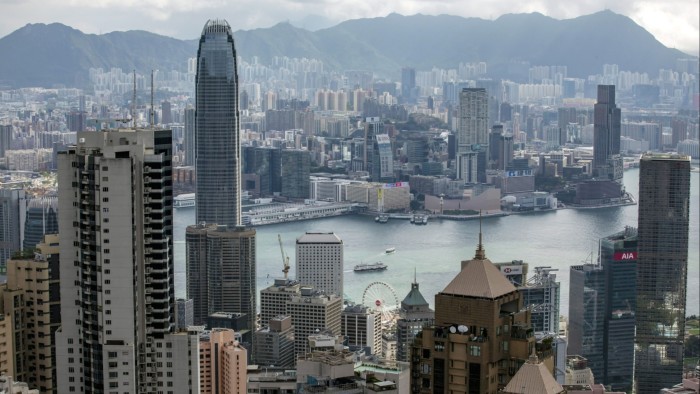Franklin Templeton aims to launch active Ucits ETFs in Asia

Roula Khalaf, Editor of the FT, selects her favourite stories in this weekly newsletter.
Latest news on ETFs
Visit our ETF Hub to find out more and to explore our in-depth data and comparison tools
Franklin Templeton is gearing up to launch Irish-domiciled active exchange traded funds across Asian markets for the first time.
The company currently has four ETFs, all active, listed in the Australian market, with total assets of A$439.4mn ($294.5mn), and the firm is looking to bring over a selection of products from its range of about 50 active ETFs to other big markets in the region.
Total assets across Franklin Templeton’s more than 100-strong passive, smart beta and active ETF product suite, which are mainly sold across the US and European markets, hit $12bn at the end of September.
Tariq Ahmad, Singapore-based co-head of Asia-Pacific at the fund house, said Singapore and Hong Kong were key Asian markets for its range of active ETFs. He said the firm would “initially” use the existing Ucits platform to market ETF funds.
The firm is aiming to “provide clients with value that’s going to be differentiated and alpha-driven, so it’s really bringing the active ideas into the market”, Ahmad said.

This article was previously published by Ignites Asia, a title owned by the FT Group.
Matthew Harrison, Sydney-based co-head of Asia-Pacific along with Ahmad, said the firm was responding to regional client demand for active strategies in an ETF wrapper.
“We take an investment capability and whether you want it in a mandate or a mutual fund or an ETF, it’s not for us to determine,” said Harrison.
Franklin Templeton was still deciding whether to target retail or wholesale segments of the market, the company said.
Making headway in the active ETF space in Asia could prove challenging, however, especially given the still nascent stage of ETF investment appetite among investors in the region, as well as the limited distribution channels in markets reliant on retrocession fees.
Not all markets across Asia even allow actively managed ETFs yet, although more are moving in that direction.
Jackie Choy, Hong Kong-based director of passive investment ratings at Morningstar, said the development of the active ETF market in Asia was still “very light” and even in markets where the funds were permitted, such as Hong Kong, the take-up from investors had been minimal.
Hong Kong has 16 active ETFs listed on its stock exchange, with total assets of HK$6.1bn ($783mn) at the end of November, out of a total exchange traded product market cap of HK$443bn.
The small number of active ETFs made it hard to gauge investor interest, Choy said, pointing out that fund distribution in Asia was dominated by banks, which had an incentive to sell products with trailer fees and commissions, putting ETFs at a disadvantage.
The move by Franklin Templeton to introduce a new line of business into the region comes against the backdrop of a challenging year for the group globally.
Franklin Templeton has suffered heavy outflows, bleeding a net $11.7bn, $19.8bn and $17.5bn in the first three quarters of 2022.
Despite the struggles in global markets, Ahmad claimed the company’s Asia-Pacific business had had “one of its best periods in terms of growth” this year based on net flows. Franklin Templeton does not make regional sales and flow data publicly available.
*Ignites Asia is a news service published by FT Specialist for professionals working in the asset management industry. It covers everything from new product launches to regulations and industry trends. Trials and subscriptions are available at ignitesasia.com.

Click here to visit the ETF Hub
Comments